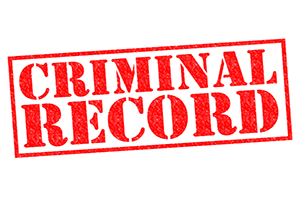Orange County Criminal Records
When it comes to understanding Orange County CA criminal records, there's a lot to unpack. Whether you're conducting background checks, a concerned citizen, or someone curious about their own criminal history, knowing how to access these records can be invaluable. In this article, we will explore how to look up someone's criminal records, and understanding the difference between misdemeanor and felony convictions.
The first step in looking up someone's Orange County criminal records is to understand that they are part of the public domain. This means that everyone has the right to access this information without needing to ask permission. Since these are considered public records, you have more than one option to lookup this information. All you need to begin your search is a first and last name.
How to Search Orange County Criminal Records
The most convenient way to search for someone's criminal records in Orange County is through online databases. This can include the Judicial websites, Law Enforcement Databases, Correctional Facilities, and Public Record Websites. It really depends on what specific criminal record you are looking for. For example, if you choose to use the Orange County Superior Court website, you can lookup someone's criminal convictions. However if you want to lookup someone's complete criminal history, then you can use a public records website. The benefits of using a service like this is allows you to access all of someone's criminal convictions, even those that occurred in other counties or states.
Types of Criminal Records That Are Searchable
There are a multitude of different types of criminal records, many of which stem from criminal court cases, that are made by a guilty plea or conviction. Other's include incarcerations, citations, or being arrested. Here is a breakdown of the various types of records that are publicly available.
Arrest Records: Law enforcement arrest reports are one of the most commonly searched types of criminal records. These records detail the circumstances surrounding an individual's arrest, including the date, time, location, and criminal charges. In Orange County, these records are generally accessible to the public through the respective police or sheriff departments.
Court Records: Criminal court cases provide detailed information about the judicial proceedings that follow an arrest. These records include court dates, the charges filed, plea deals, convictions and sentencing records. Court records are crucial for understanding the full scope of someone's criminal convictions.
Warrant Records: While there are two types of these records that are publicly accessible, only the arrest warrants are criminal records. Bench warrants do not involve criminal charges, rather they are court orders to appear in court for a non-criminal violation. Arrest warrants are allegations of a crime, while they are not convictions of a crime, they often lead to one.
Incarceration Records: These records provide information about the time an individual has spent in jail or prison. These records include the facility's name, the length of the sentence, criminal convictions, and any parole or probation details.
Traffic Citations: Most of these are considered criminal infractions, which are lesser crimes, are still considered criminal records. Misdemeanors and reckless driving violations however, typically result in misdemeanor convictions.
The Difference Between Misdemeanors and Felonies
Criminal records can range in seriousness and the penalties that follow. Misdemeanors, for example, are less severe crimes that usually result in lighter punishments. Common examples of misdemeanors include petty theft, DUIs, and minor drug offenses. In Orange County, misdemeanors typically result in fines, community service, or short-term imprisonment (less than one year). Felonies, on the other hand, are more severe crimes and carry stiffer penalties and prison time. Examples include aggravated assault, grand theft, and armed robbery. In Orange County, being convicted of a felony can result in long-term imprisonment (over one year), significant fines, and long-lasting impacts on one's civil rights.

The Impacts of Having a Criminal Past
Having a criminal record can significantly impact many future prospects for someone. These can include employment opportunities, securing housing, voting rights, traveling outside the United States, and the right to own firearms. Depending on the seriousness of the criminal conviction, having a felony or misdemeanor on your record can be devastating for some. That is because these become part of one's public record that will show up on background checks, security clearance reviews, and accessible by anyone that wants to know. While some of these records can potentially be expunged at some point, many will stay on a person's criminal history indefinitely.
How to Expunge an Orange County Criminal Record
Sealing a criminal record means that it is hidden from public view but not destroyed. In California, certain records can be sealed if eligible. This usually requires that the crime is allowed to be expunged, and the person expunging the record completes their sentence, restitution and probation. Then the appeal process begins where you must petition the courts and plead your case to expunge a record. It is important to note that eligibility doesn't mean you'll be granted expungement. If you have any pending cases or a judge doesn't deem you worthy, you might not be able to expunge your record. It might also be advisable to hire an attorney to assist in this process as they are familiar with this process.
How Do I Lookup Someone's Orange County Criminal Records?
Since these are considered public records you have a few options to research someone's criminal history. You lookup someone's criminal convictions by searching the respective court websites. You can find someone's arrest records and jail records by contacting the police or sheriff departments. Or, you can lookup someone's complete criminal history by using a third party public records website.
Are County of Orange Criminal Records Considered Public?
Yes, most all criminal records are considered public record. This means that anyone can access them view them and use them for various reasons. These are made publicly available from the California Public Records Act. You have many options when looking up these records, from government websites to third party public record sites. All you need to access these records is a first and last name.

